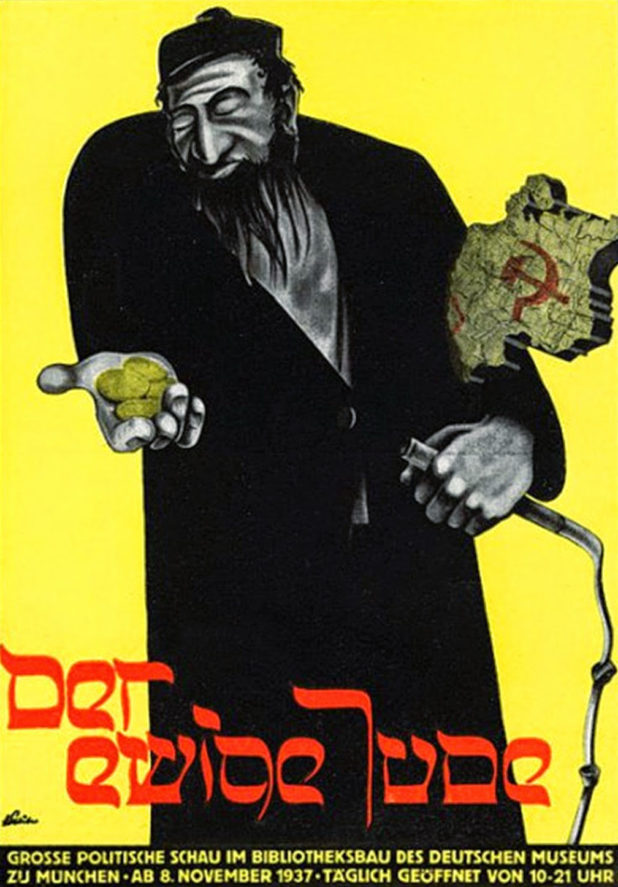Diversity Macht Frei
July 12, 2017
In the modern age, Jews are usually wary of publicly claiming to be the Chosen People or, rather, the Chosen Race. But if you read their own publications you still occasionally come across this kind of Jewish supremacism. Here we have an example from Jonathan Sacks, former Chief Rabbi of Britain.
Israel, in its history and laws, would be God’s witness. It would testify to something larger than itself. So it proved to be.
The historian Barbara Tuchman wrote: The history of the Jews is . . . intensely peculiar in the fact of having given the Western world its concept of origins and monotheism, its ethical traditions, and the founder of its prevailing religion, yet suffering dispersion, statelessness and ceaseless persecution, and finally in our times nearly successful genocide, dramatically followed by fulfilment of the never-relinquished dream of return to their homeland. Viewing this strange and singular history one cannot escape the impression that it must contain some special significance for the history of mankind, that in some way, whether one believes in divine purpose or inscrutable circumstance, the Jews have been singled out to carry the tale of human fate.
Why, if God is the God of the universe, accessible to every human being, should He choose one nation to bear witness to His presence in the human arena? This is a profound question. There is no short answer. But at least part of the answer, I believe, is this. God is wholly Other. Therefore He chose a people who would be humanity’s ‘other’. That is what Jews were – outsiders, different, distinctive, a people who swam against the tide and challenged the idols of the age. Judaism is the counter-voice in the conversation of mankind.
…
Judaism is God’s question-mark against the conventional wisdom of the age. It is neither an easy nor a comfortable fate to be “a people that dwells alone”, but it is a challenging and inspirational one.
There is often a striking factual correspondence between the claims made by antisemites and the claims made by Jews or philosemites. They see the same sets of facts in different ways but don’t necessarily disagree about what the facts are. This is a perfect example.
Antisemites claim that Jews are a hostile, alien presence in any country they live in. They subject the peoples they live among to ceaseless critique, mocking and challenging their traditions and mythologies, denigrating their sense of the sacred, undermining the healthy self-confidence that is the prerequisite for any successful national life. And they embrace or invent movements for revolutionary change, even when that change is disruptive or destructive.
The picture painted by Rabbi Jonathan Sacks is not in any factual way different from this. He simply sees the Jewish role as eternal carping critic to be useful and desirable; a great boon to the peoples the Jews live among.
No doubt a critical outside perspective can occasionally be thought-provoking and healthily stimulating. But the Jewish critique of European civilisation, as expressed in movements like Communism and immigrationism, threatens its continued existence and, in practice, gives rise to a lot of dead bodies. It is not hard to see how the Jewish presence in one’s country – the “counter-voice in the conversation of mankind” – might be regarded as menacing and undesirable, and likely to cause extraordinarily unpleasant things happening that otherwise would not have happened.
Antisemitism is not demonic. It is not evil. It is not inexplicable or irrational. It is an entirely natural, rational and moral response to the inevitable effect of having “eternal outsiders” inside the walls, sneering at one’s way of life and endlessly scheming for ways to subvert and undermine it.
And, of course, when the roles are reversed, when uppity Gentiles dare to talk back to the Chosen, subjecting Jewish traditions, culture and mythology to the same spirit of critique, Jews, strangely, don’t seem to appreciate it. They don’t appear to regard it as a useful service being performed for them, helping them down the path to self-improvement. Instead, they insist that such criticism is evil and the people offering it must be silenced and suppressed.
It would be good, for Jew and non-Jew alike, if the Jews would indeed dwell alone, whether on another planet or in a country of their own, far removed from the vital and organic human societies they apparently feel a demoniac compulsion to disrupt.
 Daily Stormer The Most Censored Publication in History
Daily Stormer The Most Censored Publication in History



